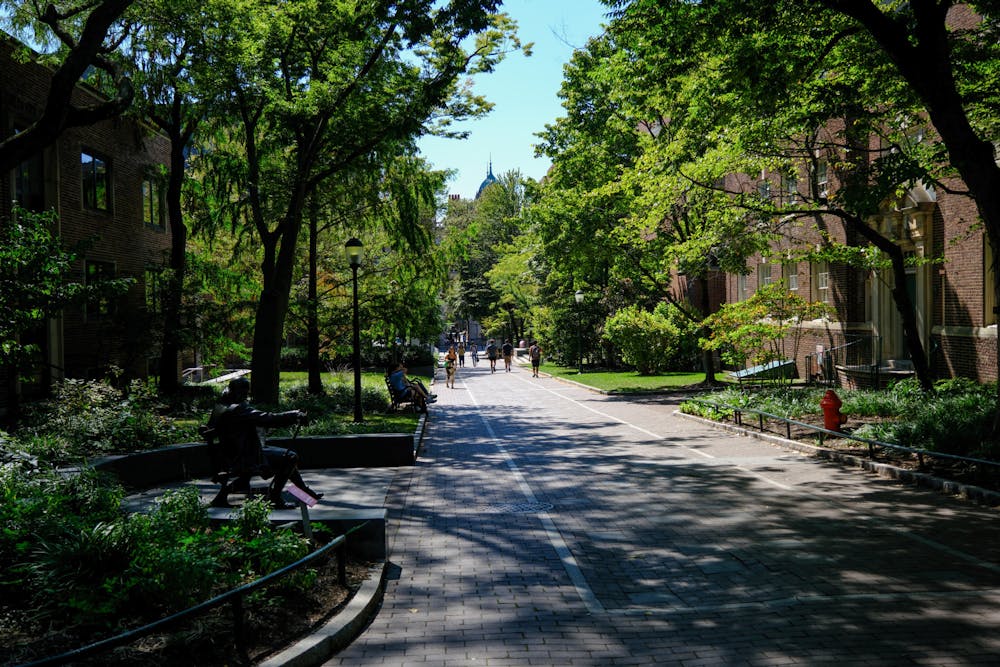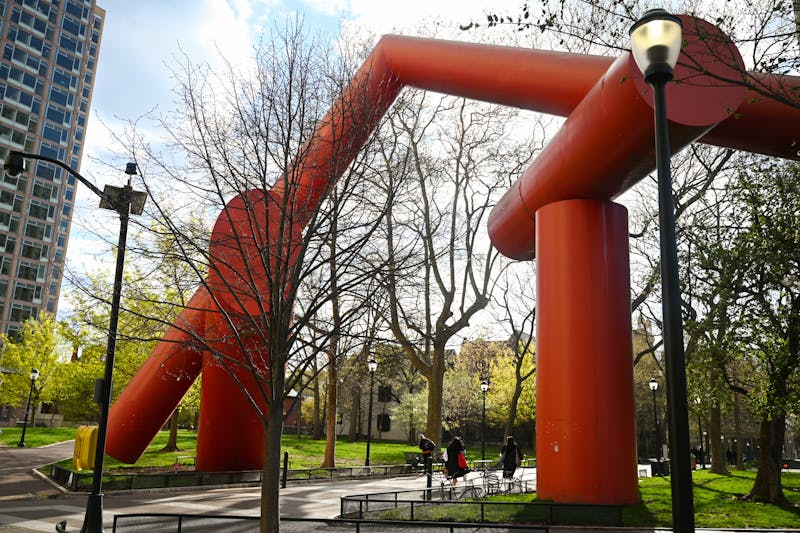
2022 College graduates Tiffany Tieu and Hope Cho have been working to raise awareness of their study on racism faced by Asian American students at Penn.
The study, conducted in the 2021-22 school year, found that most surveyed Penn students experienced or witnessed anti-Asian hate or discrimination during the COVID-19 pandemic. In a follow-up interview with The Daily Pennsylvanian, the two graduates spoke about the continued relevance of their study for the Penn community.
Shortly after graduating from Penn, Tieu and Cho met with Vice Dean for Diversity, Equity, and Inclusion Brighid Dwyer to present their findings. The conversation focused on the second part of their study, which is when they held group discussions with surveyed students on possible support systems to address anti-Asian hate in college.
“College students are in a vulnerable stage where you're trying to learn how to be an adult and also trying to enter society,” Cho said. “To have a school and community that outwardly supports you would be really great.”
Cho suggested that faculty training sessions on cultural sensitivity and increased investment in cultural houses could be part of the solution. She added that she saw her and Tieu’s research as contributing to the existing cultural resources for Penn students.
“Penn is such a large entity, it's hard to get any immediate change to happen,” Cho said. “I think it's probably a lot of individual voices that eventually become a collective voice that over time makes change.”
In October 2022, Cho and Tieu presented their study at the Asian American Psychological Association convention. Their research was later featured in an exposition for Penn’s Center for the Study of Ethnicity, Race and Immigration. Tieu also spoke with 6ABC Action News in May, during Asian Pacific American Heritage Month, and most recently discussed her senior thesis on NBC10.
Tieu said that the goal of their ongoing media outreach is “raising awareness and amplifying people's experiences.”
With the end of the COVID-19 pandemic, Tieu said that discussions of anti-Asian hate have trended downward. She added, however, that such conversations around racism are still important to have.
“Racism still happens every day,” Tieu said. “Some people will still have anti-Asian sentiment and resentment, and they'll still believe that Chinese Americans caused COVID-19.”
In addition to raising awareness about their study, Cho and Tieu have been working on publishing it in an academic journal. Cho said that one obstacle they’ve faced is finding a journal that fits their research, encompassing mental health, college students, and Asian American experiences.
“Each journal has a different focus … so catering our project to the purpose of that journal has been kind of difficult,” Cho said.
Cho added that they have also experienced some debate over the definition of Asian hate. She said that one reviewer questioned their decision to consider fetishization and cultural appropriation as hate rather than acts of appreciation.
“It’s not like people want to be fetishized,” Cho said. “I feel like it perpetuates this bad narrative that Asians are this monolith or stereotype.”
Tieu said that she plans to continue researching related topics on racial identity. Today, she works as a full-time researcher at the Children’s Hospital of Philadelphia, studying the impact of the pandemic on mothers and children, especially in Black families. She is currently applying to Ph.D. programs related to clinical and counseling psychology.
Cho is currently based in New York as a clinical research coordinator at the Herbert Irving Comprehensive Cancer Center. She also volunteers at an oncology lab, assisting with projects mainly relating to pancreatic cancer.
The Daily Pennsylvanian is an independent, student-run newspaper. Please consider making a donation to support the coverage that shapes the University. Your generosity ensures a future of strong journalism at Penn.
Donate







